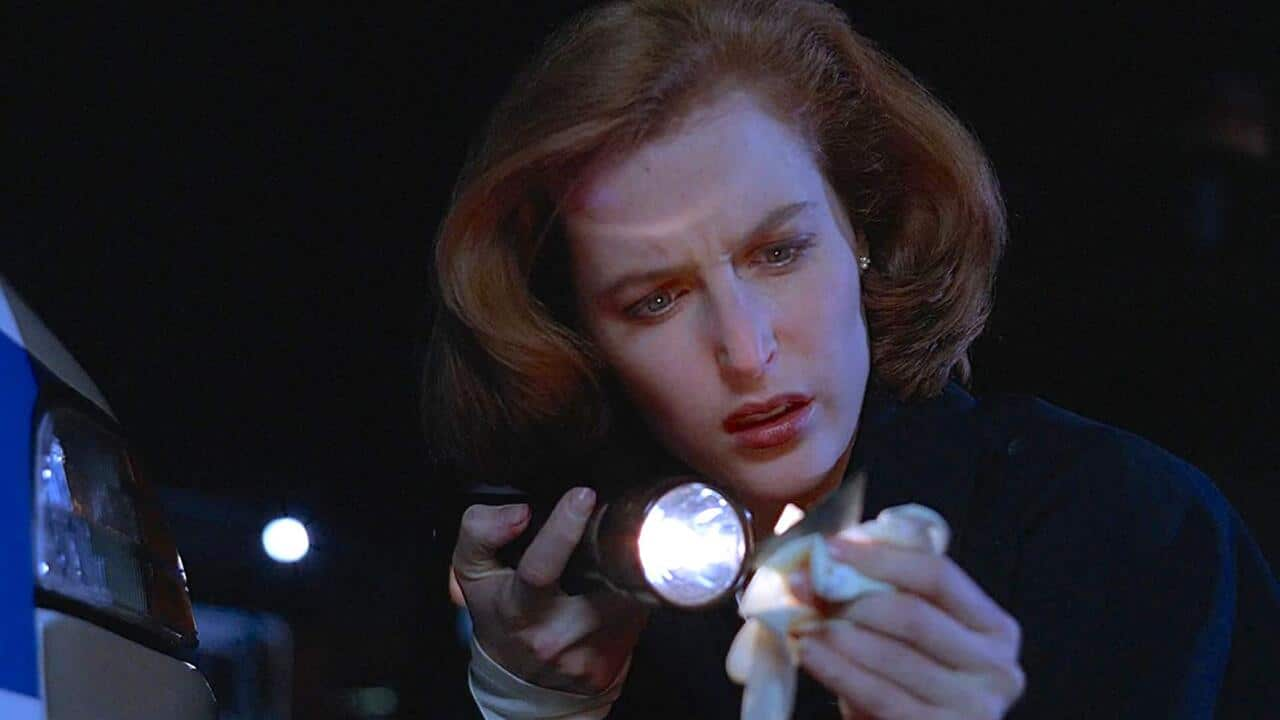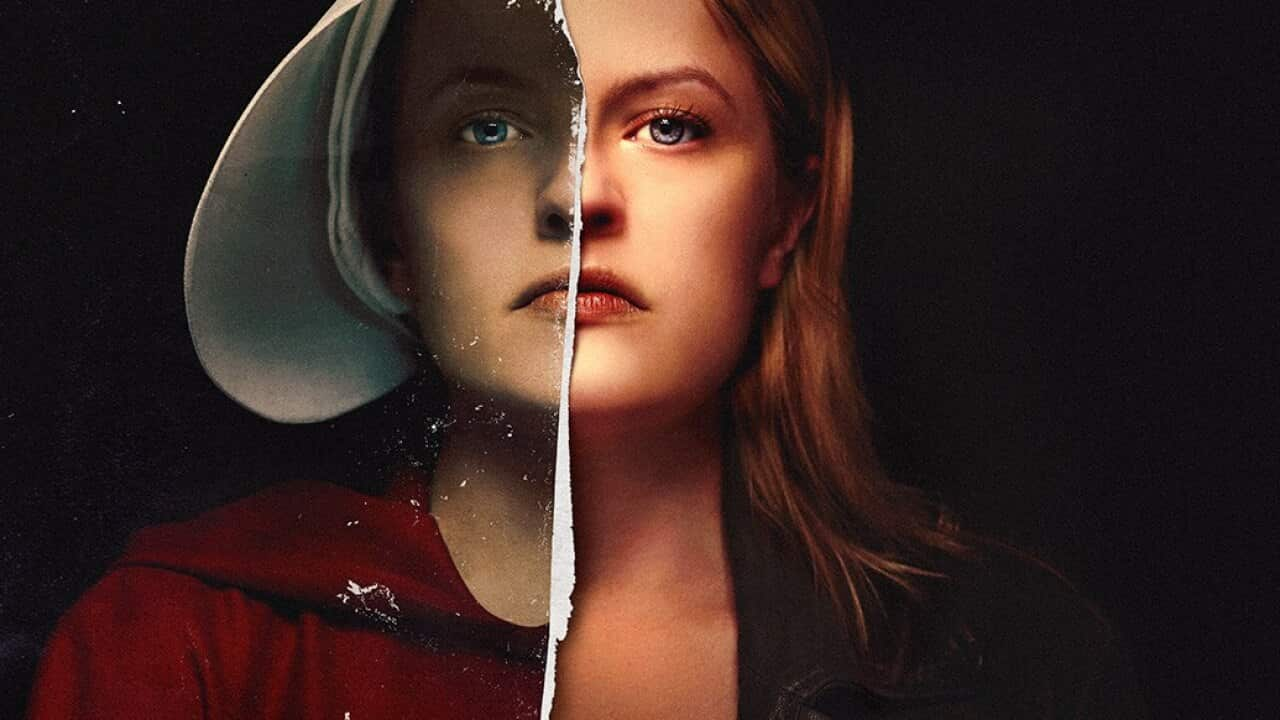From the 1990s onwards, especially during The X-Files’ original heyday, young women began to take Agent Dana Scully’s lead. It’s been called The Scully Effect – and while other female TV stars of the era, such as Friends’ Jennifer Aniston, sparked similar terms by starting a hairstyle trend, Gillian Anderson’s FBI agent inspired a generation into new careers.
They might’ve donned sharp bobs and crisp pantsuits while they were doing so, but in traditionally male-dominated fields such as science, technology, medicine and law enforcement, women were eager to do more than look like their hero. They wanted to follow in the character’s footsteps and step into her professional realm, and the increase was noticeable.
Asked about The Scully Effect on the show’s 20th anniversary in 2013, . “We got a lot of letters all the time, and I was told quite frequently by girls who were going into the medical world or the science world or the FBI world or other worlds that I reigned, that they were pursuing those pursuits because of the character of Scully,” she noted. Her response was typical of Anderson – if, perhaps, a little too informal for the character with whom she’ll forever be synonymous – “Yay!”
Even if the pattern hadn’t been given a name and observed around the world, there’s no doubting its existence. Not even a teenager when The X-Files started airing in Australia, I too wanted to be like Dana Scully and pursue a career in forensic science. I wasn’t the only girl I knew who had that dream, and the fact that I was a squeamish kid didn’t scare me off. Nor did the certainty, which I was always fully aware of, that a real-life job in the field was never going to be like it was on television. I ultimately took another path, but whenever I see Anderson on screen – whether in one of the many other roles that have characterised her prolific career, or in the part that’ll always have a place in my heart – I wonder what might’ve been.
At a time when women were rarely allowed to be smart, rational, fierce, brave and formidable forces to be reckoned on television or in film, Scully instantly stood out. She had an immediate predecessor, with the show perfectly timed to arrive just after Jodie Foster’s Oscar-winning performance as FBI agent Clarice Starling in The Silence of the Lambs, but few other similar characters inhabited the same realm.
Shows about women in law enforcement were hardly frequent or similar, with Charlie’s Angels favouring glamour, TJ Hooker trading on Heather Locklear’s appearance and Cagney and Lacey a notable outlier. Prime Suspect had just begun in the UK; however, the pervasive picture of televised womanhood came from two sources: the prime-time soap operas that dominated the 1980s, and that other pop culture force of the 1990s: Baywatch.
While Scully has always been a unique creation, the entire premise of The X-Files placed her in a rare position – as a woman of both science and faith partnered with the FBI’s resident UFO-chaser, Fox Mulder (David Duchovny). On the surface, it’s an easy odd-couple pairing, with chalk-and-cheese professional relationships a bedrock of television. The depth and respect afforded Scully is critical, however. From the outset, she’s highly regarded in her scientific field. She’s valued for her work, even just two years into her agency tenure, and assigned to partner with Mulder in order to debunk his. But, despite being put in place for an obvious initial purpose, she’s her own woman who makes her own decisions, won’t be manipulated by her male superiors and trusts her own judgement above all else.
The importance of both sides of Scully’s story can’t be underestimated. Typically, at least as depicted in fiction, to study science is to step away from religion. And yet, Scully’s Catholic upbringing left a lasting imprint, even when she chose to study physics, then become a medical doctor, and then enter the FBI. It’s the type of contradiction that writers like to ignore, in favour of clear-cut character types.
Netflix has made ‘strong female lead’ a go-to category, although it isn’t the same thing as ‘complex female lead’ by any means. And yet, Scully’s power came from her contrasts. She could think logically about the world, relying upon science, while also feeling deeply that life and existence had a purpose. She believed in facts and faith alike, and was analytical and open-minded. And, as the show demonstrated over its run, she had more in common with Mulder than anyone would’ve guessed. In other words, Scully was realistic – as multifaceted as anyone watching, as likely to have both similarities and differences with whoever she’s working with, although, admittedly, more aware of her duality than most. That’s something that translates to everyone, regardless of whether you share Scully’s religious affiliation. How one wrestles with the conflicting elements of their character is one of the defining aspects of any character, and Scully’s approach was to have faith in herself first and foremost, to learn and to excel. And, to get her hands appropriately dirty.
In other words, Scully was realistic – as multifaceted as anyone watching, as likely to have both similarities and differences with whoever she’s working with, although, admittedly, more aware of her duality than most. That’s something that translates to everyone, regardless of whether you share Scully’s religious affiliation. How one wrestles with the conflicting elements of their character is one of the defining aspects of any character, and Scully’s approach was to have faith in herself first and foremost, to learn and to excel. And, to get her hands appropriately dirty.

Gillian Anderson as Dana Scully and David Duchovny as Fox Mulder in ‘The X-Files’. Source: SBS
Some of Scully’s most inspirational moments don’t involve bantering with Mulder, or subverting the FBI status quo, or calmly and cleverly navigating the labyrinthine world of paranormal investigation in a federal agency, but rather simply performing her craft. Blood, guts and autopsies are all simply part of a day’s work – as much a part as aliens and other unexplained phenomena – and so she simply soldiers on.
Of course, it’s crucial to separate strength and complexity from impossible standards of perfection. Scully has also always stood out not just for her positive, motivating traits, but because she’s human. She grapples with what her work means, as well as the life she leads; not in a ‘women gossiping and complaining over cocktails’-style stereotypical way, but in a weighty, existential sense.
More than once, Scully’s work with Mulder led her to motherhood, and her quiet yet palpable angst over the outcome is one of The X-Files’ savviest touches. Not only did the show give women everywhere a role model who excelled at what she loved, earned everything that came her way and ran intellectual rings around almost everyone she came into contact with, but also a relatable figure who tussled with the same big life questions shared by women everywhere. That notion might’ve been lost on the teenagers eager to take her lead, but it isn’t on the now adult women who’ve grown up with Scully as an idol for nearly three decades. Nor has Scully’s overall impact been missed by the viewing world in general. While the character’s influence extends well beyond popular culture, every commanding yet textured, complicated yet competent fictional heroine in film and television over the past 26 years owes a debt to the FBI Agent – and the list of such figures is lengthy. Without Scully blazing the way across The X-Files’ initial 10-season run from 1993 to 2002, its two films in 1998 and 2008, and the show’s TV revival in 2016 and 2018, viewers mightn’t have been gifted similarly powerful but flawed protagonists in everything from Alias and Bones to Law and Order: SVU to Fringe, just to name a few obvious examples, or the capable women to come.
Nor has Scully’s overall impact been missed by the viewing world in general. While the character’s influence extends well beyond popular culture, every commanding yet textured, complicated yet competent fictional heroine in film and television over the past 26 years owes a debt to the FBI Agent – and the list of such figures is lengthy. Without Scully blazing the way across The X-Files’ initial 10-season run from 1993 to 2002, its two films in 1998 and 2008, and the show’s TV revival in 2016 and 2018, viewers mightn’t have been gifted similarly powerful but flawed protagonists in everything from Alias and Bones to Law and Order: SVU to Fringe, just to name a few obvious examples, or the capable women to come.

Gillian Anderson as Dana Scully in ‘The X-Files’. Source: SBS
For The X-Files itself, it’s telling that the series only came to an end, for the second time, when Anderson said she wouldn’t return as Scully. “the idea of doing the show without her isn’t something I’ve ever had to consider.” The program survived the loss of David Duchovny as a lead in its eighth and ninth seasons, scaling down Mulder’s involvement, but it would never be the same without Anderson as Scully. As played to such memorable perfection by the former, the latter is both The X-Files’ brain and heart – she’s that pivotal and essential.
In HD and remastered for the first time on Australian free-to-air television, The X-Files airs weeknights at 7:30pm on SBS VICELAND from Monday 10 June. After broadcast, episodes will stream at SBS On Demand.







